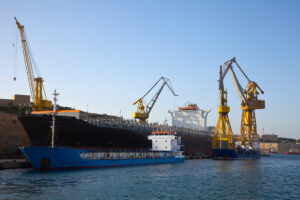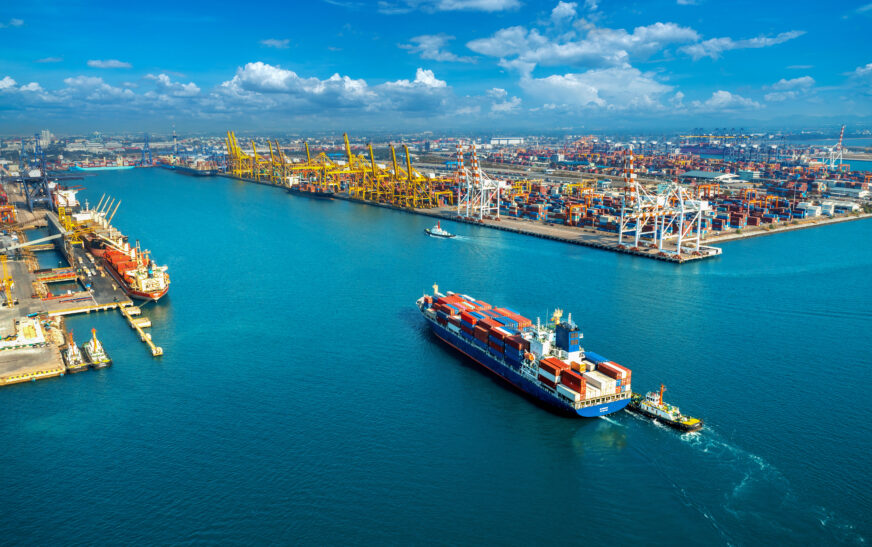The maritime industry is the lifeline of global trade, transporting about 90% of the world’s goods. Ship management companies play a crucial role in effective technical management, maintaining vessel performance, ensuring safety, and complying with international regulations. Let’s dive into what makes technical management essential and how you can implement comprehensive maintenance plans, leverage advanced technology, and ensure proper crew training.
The Importance of Technical Management
Safety and Compliance
In the maritime industry, maintaining high safety standards and ensuring compliance with international regulations are essential to keeping your vessel running smoothly. Regulatory bodies have set clear guidelines that vessels must adhere to, and failing to meet these standards can lead to serious consequences, such as fines, detention of the vessel, or even more severe legal repercussions.
Safety management systems are crucial in technical ship management as they establish policies and procedures to mitigate health, safety, security, and environmental risks, ensuring compliance with international regulations and promoting a culture of safety onboard vessels.
Key regulations include:
- SOLAS (Safety of Life at Sea): This set of international rules is designed to ensure that ships are equipped with the necessary safety measures to protect passengers, crew, and cargo. SOLAS covers everything from life-saving appliances to fire protection and stability requirements.
- MARPOL (Marine Pollution): This focuses on preventing pollution from ships. It sets standards for waste disposal, emissions, and other environmental factors, ensuring ships don’t harm the seas they travel on.
- ISM Code (International Safety Management): This code sets standards for the safe operation and management of ships. It requires owners and operators to implement a safety management system (SMS), ensuring all crew members understand their roles in maintaining the ship’s safety.
Regular safety audits and inspections ensure compliance and operational safety. This not only protects your crew and cargo but also helps avoid hefty fines and operational disruptions. By continuously monitoring and adhering to these standards, you mitigate risks and demonstrate a commitment to responsible ship operation.
Operational Efficiency and Cost Control
Technical management directly influences your ship’s efficient operation and operational efficiency. Maintaining optimal vessel performance means managing fuel consumption, reducing downtime, and minimizing operational costs. This results in better profitability and sustainability for the shipowner.
Fuel Efficiency: Reducing fuel consumption should be a priority for any shipowner, as fuel is one of the highest operational expenses. Key ways to optimize fuel use include:
- Regular hull cleaning to reduce drag and improve fuel efficiency.
- Propeller polishing to ensure minimal resistance during movement.
- Implementing energy-efficient technologies like air lubrication systems, which reduce friction between the hull and water.
Cost Reduction: Preventive maintenance is a cornerstone of cost-saving strategies. By addressing potential issues before they become expensive repairs, you can avoid unexpected downtime and expensive repairs. For instance, failing to maintain the engine properly may result in a complete breakdown, leading to costly repairs and delays. Predictive maintenance tools, like condition-based monitoring systems, can alert you to issues before they escalate.
Route Optimization: Modern navigation tools and software now allow ship operators to optimize routes to save time and fuel, factoring in weather conditions, sea currents, and other variables. This minimizes the distance traveled and avoids unnecessary detours.
Asset Preservation
Your ship represents a significant investment, and it’s essential to protect its value. Effective technical management helps you preserve your vessel’s assets by ensuring it remains in top condition throughout its lifespan. Well-maintained ships have a higher resale value, reduce repair costs, and can operate longer, offering a better return on investment. Planned maintenance systems play a crucial role in asset preservation by lowering operational costs and adapting to changing circumstances, ensuring compliance and efficiency in maintenance operations.
Routine Maintenance: Scheduled maintenance checks are fundamental to extending the life of your ship. This includes regular inspections of the hull, engine, steering system, and other crucial components. It’s not just about fixing problems—it’s about identifying small issues before they turn into big, expensive ones.
High-Quality Repairs and Replacements: Using high-quality parts and skilled technicians ensures that repairs are durable and effective. Cutting corners on maintenance can lead to recurring problems and a shorter lifespan for the ship.

Comprehensive Maintenance Plans
A well-structured Planned Maintenance System (PMS) is the foundation of good technical management and cost control. A PMS ensures that all equipment and systems are regularly inspected, maintained, and replaced as needed. It can also track maintenance records and help you anticipate future repairs.
Key Elements of a PMS
- Routine Inspections: This involves frequent checks on essential systems such as engines, power generation systems, hull integrity, and navigational equipment. This ensures all parts are functioning as expected and that potential issues are spotted before they cause significant disruptions.
Technical ship management services play a crucial role in ensuring effective maintenance by providing comprehensive solutions, including technical management, crew management, safety inspections, and administrative tasks.
- Preventive Maintenance: Preventive measures, like replacing components that are likely to wear out over time (e.g., filters, lubricants, seals), can be planned ahead to avoid failures. Scheduled service intervals allow for proactive part replacement and systems checks.
- Corrective Maintenance: If an issue arises that wasn’t previously detected, corrective maintenance ensures it’s quickly addressed. Corrective measures, such as emergency repairs, help to minimize the vessel’s downtime and get it back into operation quickly.
A robust PMS will not only reduce unexpected repairs and downtime but will also lower operating costs over time by ensuring the ship’s equipment is kept in optimal condition.
Condition Monitoring
Condition monitoring uses advanced technology and technical expertise to track the health of a ship’s machinery and systems in real time. This method allows shipowners to identify potential issues before they develop into expensive breakdowns.
Key techniques include:
- Vibration Analysis: Measures the vibration of equipment like engines and turbines to detect misalignment or unbalance. Anomalies in vibration signals often indicate developing mechanical issues.
- Oil Analysis: By examining the oil used in machinery, you can detect contaminants or wear particles, signaling early signs of trouble in engines or other mechanical systems.
- Thermography: Uses infrared cameras to detect excess heat in electrical and mechanical systems. Hot spots can signal electrical failures or poor connections, allowing for repairs before major issues occur.
Leveraging Advanced Technology
The integration of advanced technology into ship management is one of the most exciting developments in the maritime industry. Technology has revolutionized the way we monitor, maintain, and optimize ship operations.
A technical ship manager plays a crucial role in leveraging advanced technology to ensure vessel safety, compliance, and operational efficiency.
Digitalization and Automation
In today’s world, digital tools are increasingly used to streamline ship management. These tools improve operational efficiency by collecting and analyzing data in real time.
Outsourcing digitalization and automation tasks to a third party ship manager can offer significant advantages, such as economies of scale, improved efficiency, and the relief of day-to-day operational responsibilities, allowing shipowners to focus on their core business activities.
- IoT Sensors: Internet of Things (IoT) sensors installed on various ship systems provide real-time data on everything from engine performance to fuel consumption. This data can be used to predict maintenance needs and optimize the operation.
- Automated Reporting Systems: These systems capture operational data and generate reports automatically, reducing human error and providing accurate, timely insights into the vessel’s performance.
Artificial Intelligence and Machine Learning
AI and machine learning are making ship operations smarter:
Ship management services play a crucial role in enhancing operational efficiency through AI and machine learning by providing comprehensive support, including technical ship management, operational maintenance, crew management, and financial administration.
- Predictive Maintenance: By analyzing historical and real-time data, AI can predict when a piece of equipment is likely to fail, allowing the crew to conduct maintenance before issues occur.
- Operational Optimization: Machine learning algorithms use data from sensors and historical performance to optimize fuel consumption, routing, and load distribution, ultimately improving the vessel’s efficiency.
Remote Monitoring and Assistance
With remote monitoring systems, shipowners and operators can oversee their vessels’ operations without being physically present on board. Crew management plays a crucial role in ensuring effective remote monitoring and assistance by coordinating a dedicated shore-based team that works closely with the ship-based crew.
- Remote Diagnostics: By transmitting data to shore-based experts, issues can be diagnosed remotely, allowing the crew to receive troubleshooting assistance, reducing the need for costly on-site repairs.
- Augmented Reality (AR) Support: AR tools provide real-time visual support for onboard crews, helping them navigate through repairs or technical problems by overlaying instructions directly onto the ship’s systems.
Crew Training and Competence
Crew training is another key aspect of technical management. No matter how advanced the technology, the crew’s ability to properly use and maintain equipment is crucial for success.
Ship management encompasses a diverse array of services essential for ship owners, including technical management, crew management, inspections, new building, and commercial services. These services are vital in ensuring that crew members are well-trained and competent in their roles.
Safety Training
Training crew members in emergency procedures is fundamental to ensuring their safety in the event of an accident. Ship owners play a crucial role in ensuring that their crew is well-trained in safety procedures, often relying on third-party management companies to handle these complex operational tasks.
- Regular Drills: Conducting fire, abandon ship, and man-overboard drills regularly, and reviewing and refining emergency response protocols based on drill outcomes.
- Emergency Response: Training on the use of safety equipment, including lifeboats, firefighting systems, and first aid kits, ensures that the crew is fully prepared for any scenario.
Technical Training
Ensuring the crew is equipped to handle complex systems and machinery is essential for smooth operations. Selecting the right technical ship management company is crucial, as they provide specialized technical training that enhances the crew’s capabilities. Regular, specialized training on the latest equipment and technologies ensures the crew can maximize the ship’s performance and efficiency.
Regulatory Training
Compliance with international maritime regulations requires ongoing training for the crew, ensuring that all onboard personnel are familiar with SOLAS, MARPOL, and the ISM Code. This includes:
- Regulatory Updates: As regulations evolve, keeping the crew informed and trained on changes is critical to maintaining compliance.
- Understanding Legal Implications: Training programs also emphasize the legal consequences of non-compliance, ensuring that the crew understands the significance of adhering to regulations.
Conclusion
In conclusion, technical ship management services are the backbone of the maritime industry, ensuring vessels operate efficiently, safely, and in compliance with international regulations. Effective management involves comprehensive maintenance plans, advanced technology, and well-trained crews, all of which contribute to reducing operational risks and costs while extending the lifespan of vessels.
Reflecting on this blog article, it’s clear how vital robust technical management practices are for smooth sailing. The challenges shipowners face can be daunting, but with a strategic approach, these hurdles can be overcome. From personal experience in the industry, I’ve seen firsthand how proactive maintenance and investment in technology pay off in the long run.
Adopting these practices not only safeguards the vessel and crew but also boosts overall operational efficiency. As the maritime landscape evolves, staying ahead with sound technical management will remain crucial for success. Whether you’re a seasoned shipowner or new to the industry, prioritizing technical management is key to navigating the seas smoothly and sustainably.




